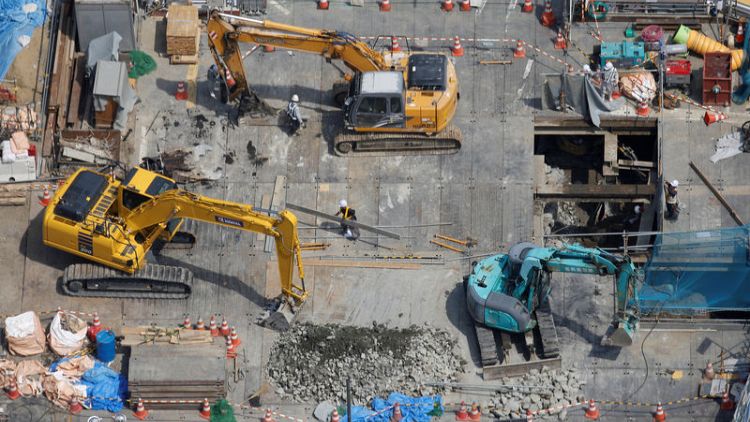By Stanley White
TOKYO (Reuters) - Japan's machinery orders posted their first monthly increase in four months in February due to improved demand from the energy and telecommunications sectors but weakening global conditions remain major challenges for the world's third-largest economy.
The 1.8 percent increase month-on-month in core machinery orders, an often volatile leading indicator of capital expenditure, followed a 5.4 percent decline in the previous month.
But the expansion was weaker than the median forecast for a 2.5 percent increase in a Reuters poll of economists. It is also unlikely to ease concerns that companies could drastically cut business investment due to the U.S.-Sino trade war and rising inventories of electronic parts.
Orders from manufacturers rose 3.5 percent in February, following a 1.9 percent month-on-month decline in January, Cabinet Office data showed on Wednesday.
Orders from non-manufacturers fell 0.8 percent month-on-month in February after an 8.0 percent decline in January from the previous month.
Of some encouragement for policymakers, machinery orders from overseas rose 19.0 percent, recovering from an 18.1 percent tumble in January.
"Core" machinery orders exclude those for ships and from electricity utilities.
The United States and China are trying to narrow their differences over trade but are yet to agree to a deal that would unwind punitive tariffs and restore global trade flows.
The two countries have been embroiled in a tit-for-tat tariff battle since July 2018, which has roiled supply chains.
Japanese manufactures rely on selling heavy machinery and electronic parts to companies operating in China, which are used to make finished goods.
Economists say uncertainty over trade policy could discourage Japanese companies from increasing capital expenditure, which will act as a curb on economic growth.
Another risk for Japan's economy is the government's plan to raise the nationwide sales tax to 10 percent from 8 percent in October. The government needs the extra revenue for rising welfare costs, but the tax hike could also weaken consumer spending.
(Reporting by Stanley White; Editing by Sam Holmes)



